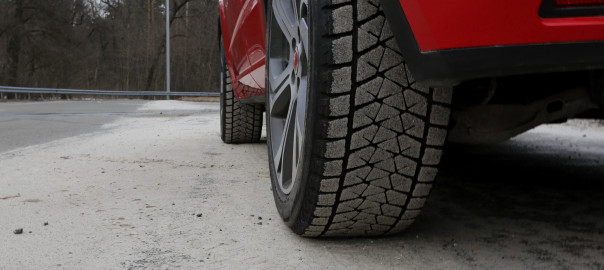In this blog entry, the professional Chicago vehicle recovery service and Chicago heavy duty towing service team here at Towing Chicago will detail the essential aspects of winter tires and tire safety for driving in snowy or icy conditions.
Why are winter tires important?
Wintner tires are designed to provide better grip and traction on slippery, icy, and slushy roads when compared to all season tires or summer tires. Wintner tires utilize a special type of rubber that is flexible even in cold weather, helping them keep contact with the road and provide ideal traction levels. Wintner tires have tread with deeper grooves and more sipes (small tread cuts) which help them keep a stronger grip on icy or snowy surfaces. In Chicago, weather can change suddenly, which is why it’s always a good idea to install winter tires on your vehicle, and to use a penny to check that your tire treads are too worn down.
Tire Chains
Tire chains provide another level of safety in serious winter driving conditions, especially for vehicles that lack all wheel drive or four wheel drive capabilities. Chais provide increased traction, making them ideal for navigating steep hills or snow packed roads. Chains are recommended for when roads are covered in snow or ice, as they can cause damage to bare pavement. Tire chains are ideal in snowy conditions to reduce slipping and skidding, especially when driving on unpaved roads. However, chains should not be considered an adequate substitute for quality winter tires, and serve best as an addition to them in particular winter driving conditions.
How can I better prepare my vehicle for driving in the winter in Chicago?
- Adjust tire pressure as cold weather can reduce tire pressure, making your vehicle handle differently. Use a pressure gauge to check your tires and adjust them as necessary according to manufacturer rules
- Keep a winter emergency kit in your vehicle including blankets, water, a flashlight, road flares, a shovel, snow chains, and traction assistance materials like sand or kitty litter to help your tires grip the ground better if you get stuck
- Purchase snow-rated windshield wipers and fill the washing fluid chamber with winter-grade windshield wiper fluid
- Drive slowly on snow, ice, or slush covered roads
- Leave extra space between your vehicle and those in front of you and behind you
- Pay attention to local traffic services re: snow chain warnings
- Always check weather before embarking on a drive especially in areas prone to extreme winter weather, or those with harsh or difficult terrain

